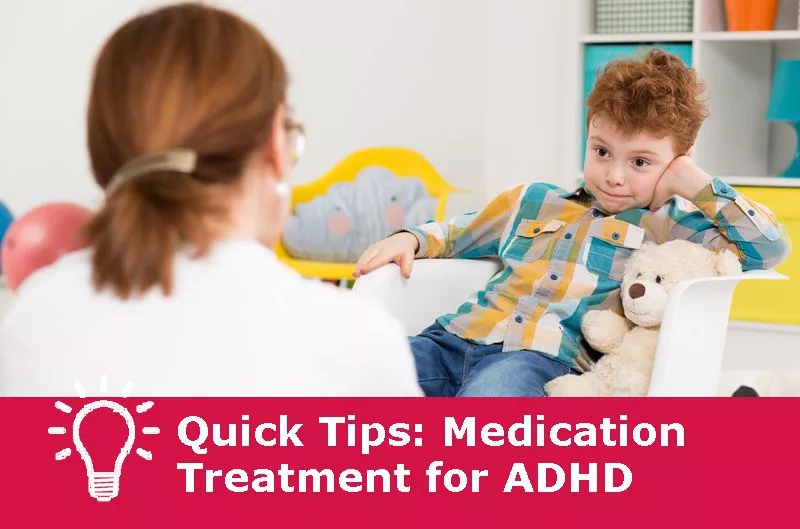Choosing and prescribing the right medications for treating ADHD can be challenging. The Carlat Child Psychiatry Report spoke with Anne Buchanan, DO, Child psychiatrist at Maimonides Medical Center in Brooklyn, NY, about her approach. She offers the following tips.When choosing meds, Dr. Buchanan recommends that you:
- Consider stimulants first line.
- View alpha-agonists as second line, or use them as augmenters to a stimulant, such as when you see only a partial response from a stimulant, or if you are limited in dosing due to side effects.
- Use agents such as Strattera (atomoxetine), and Wellbutrin (bupropion) as third line.
Deviate from this depending on contraindications or co-morbidities, but most kids do well on stimulants. Ultimately, the recommendations that you land on depend on individual tolerability.
Dr. Buchanan recommends starting with a methylphenidate product, and then trying a second one before going to a more amphetamine product, which can often be more potent, with more appetite suppression, irritability, and withdrawal symptoms. Start with any of the long acting methylphenidate products, including medications such as Concerta, Metadate CD, Ritalin LA, and Focalin XR.
For younger kids, consider starting with a short acting med, such as a generic Ritalin (methylphenidate), as younger children may experience more side effects and may not need as much coverage. The newer liquid, chewable and dissolvable ones seem great for kids who struggle to swallow pills. However, insurance often doesn’t cover them initially. With some generics and Adderall XR, Metadate CD, Focalin XR and Ritalin LA, it works well to snip the capsule and pour the beads into a spoonful of something with decent consistency such as yogurt, oatmeal, or peanut butter – just not a liquid – to ensure the child gets all the beads.
As for what doses to start with, Dr. Buchanan recommends the following:
- Start with the lowest dose. If needed, after seeing improvement and seeing no side effects, go up to and over the maximum recommended dose.
- For Metadate, the first dose should be 10 mg, and if by 30 mg there are side effects and no improvement, switch to something else. Otherwise, go to a maximum of 60 mg.
- For Concerta, start at 18 mg. If the medicine is tolerated and the symptoms are improving, go up to the max of 72 mg, and even higher in certain patients.
Subscribers can read our full interview with Dr. Buchanan here. If these quick tips and the topic interests you, why not subscribe to The Carlat Child Psychiatry Report? You'll have complete access to all the child psychiatry articles in the archive accessible easily by search.


_-The-Breakthrough-Antipsychotic-That-Could-Change-Everything.webp?t=1729528747)



